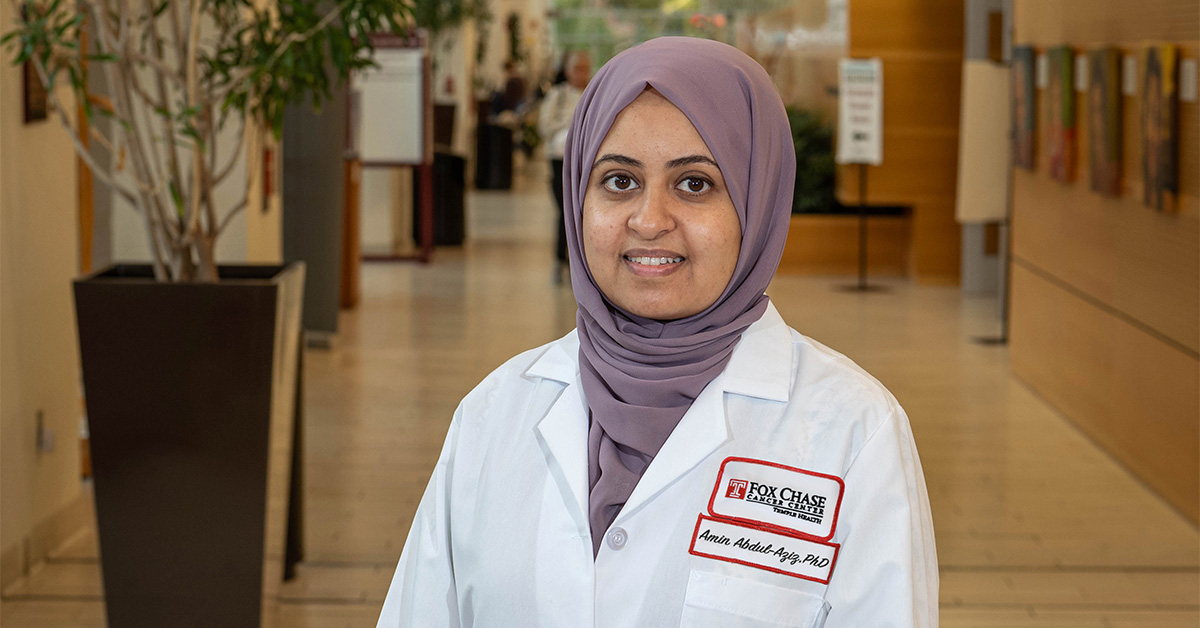
PHILADELPHIA (February 2, 2024) — The Lewis Katz School of Medicine at Temple University is pleased to announce the hiring of Amina Abdul-Aziz, PhD, as an Assistant Professor at the Fels Cancer Institute for Personalized Medicine and new member of the Cancer Signaling and Microenvironment Research Program at Fox Chase Cancer Center.
Abdul-Aziz joins the institute following a postdoctoral fellowship in the Leukemia and Drug Development Lab in the Division of Hematology/Oncology at the University of Cincinnati. Prior to that, from 2018 through 2021, she was a postdoctoral fellow at The Ohio State University Comprehensive Cancer Center.
She specializes in stromal bone marrow microenvironment modeling and has more than 10 years of experience in the biology of blood disorders, including acute myeloid leukemia, chronic lymphocytic leukemia, and multiple myeloma.
She has led drug development projects targeting signaling pathways and biological processes driving leukemia development. Her current focus is on aging-related alterations in the bone marrow microenvironment, which consists of surrounding cells that assist in growth. Her research seeks to develop therapies to target aging and senescence of the tumor microenvironment.
She received her doctorate in biomedical sciences related to cancer research from the Norwich Medical School at the University of East Anglia in the United Kingdom. She earned a Master of Science degree in oncology from the School of Molecular Sciences at the University of Nottingham in the United Kingdom and a Bachelor of Science in Pharmacy and Biotechnology from the German University in Cairo, Egypt.
She is a member of several scientific societies, including the European Hematology Association, the Association for Cancer Research, the International Cell Senescence Association, the American Society of Hematology, and the American Aging Association.
She has published a number of impactful studies in peer-reviewed journals, including Blood, Cancer Research, the Journal of Hematology & Oncology, The Lancet Haematology, and the British Journal of Haematology.